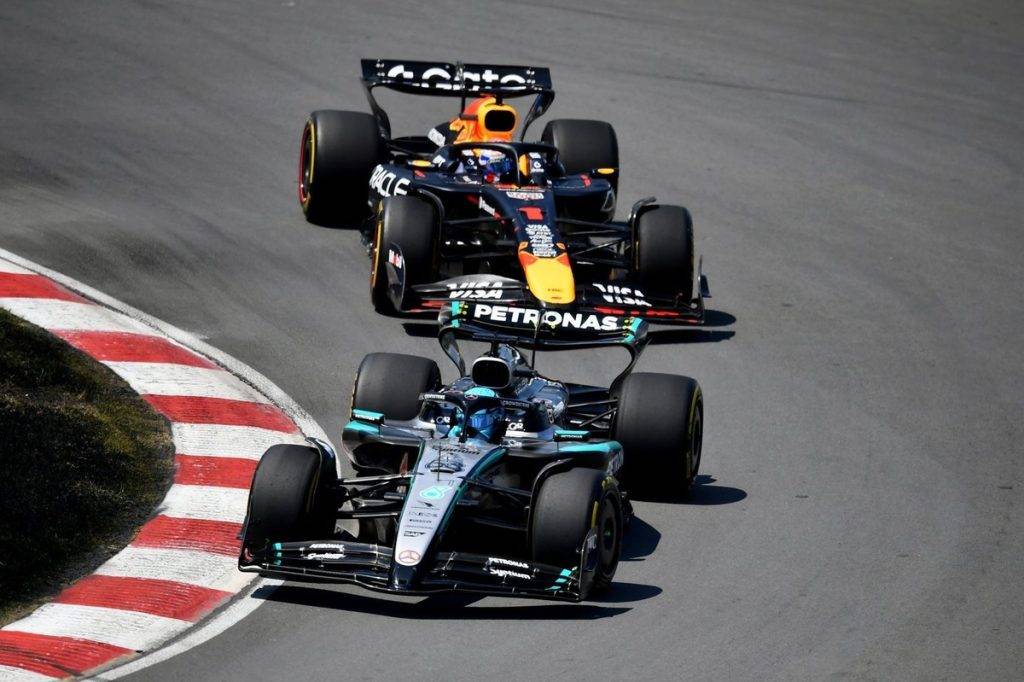Verstappen’s Future: The High Stakes for Mercedes and Red Bull
The ongoing dialogue surrounding Max Verstappen’s potential move to Mercedes is intensifying, with both team principals maintaining a strategic silence as they navigate the fascinating complexities of Formula 1‘s future. The four-time world champion is under contract with Red Bull until the end of 2028, but speculation persists that a shift might occur by 2026, while Mercedes positions itself for a major regulatory overhaul.
What’s at Stake?
The implications of this situation are monumental. For Verstappen, a switch to Mercedes could redefy his career trajectory, while for Mercedes, securing the Dutch driver could be crucial in its quest to reclaim dominance in F1. Conversely, it could dismantle the long-term strategy designed around current drivers George Russell and Andrea Kimi Antonelli.
Toto Wolff and Christian Horner: The Tactical Game of F1
Mercedes team principal Toto Wolff remains coy yet optimistic about the prospect of Verstappen joining the Silver Arrows. “The best drivers want to drive the best cars,” Wolff noted, hinting that the allure of Mercedes could tempt Verstappen despite his solidified position at Red Bull. In contrast, Red Bull’s Christian Horner, backed by Helmut Marko, stresses the stability of Verstappen’s contractual obligations and the team’s intent to retain their star driver.
The 2026 Program: A New Era
The 2026 F1 season presents both a challenge and an opportunity, with a significant regulatory overhaul set to shift the competitive landscape. Mercedes is preparing meticulously, particularly in terms of its power unit, which could prove pivotal in the new technical era. The success or failure of the 2026 project could hinge on the team’s driver lineup, raising questions about the compatibility of Verstappen with the current duo of Russell and Antonelli.
Verstappen: A Double-Edged Sword for Mercedes
Bringing Verstappen on board would come with both undeniable advantages and significant risks. His prowess on the track could enhance Mercedes’ competitiveness, particularly if a powerful engine is in place. However, the ramifications for Russell, who is experiencing a breakout season, could be problematic. Should Verstappen arrive, it’s likely that the promising relationship and development of Russell’s long-term career could be jeopardized.
The Impact on Mercedes’ Junior Program
Russell, a product of Mercedes’ junior program, represents nearly a decade of investment, and letting him go would throw that strategy into disarray. Additionally, if Verstappen were to join, concern would grow regarding the balance of power within the team, as Verstappen is known for being an assertive teammate.
Red Bull’s Perspective: A Future at Stake
While Red Bull maintains they have Verstappen locked in until 2028, the reality is that contracts in F1 are often more flexible than they appear. Should Verstappen seek a move, it could force Red Bull to negotiate his departure, a scenario they would prefer to avoid.
Furthermore, the tension between Red Bull and Mercedes adds another layer of complexity. Losing Verstappen to their rivals would be a significant blow to Red Bull’s ambitions, intensifying the rivalry between the two teams.
A Move Beyond Technical Decisions
For Verstappen, a potential move to Mercedes wouldn’t just be a technical decision; it would significantly alter the landscape of his career. Red Bull has tailored its structure around him, empowering him in ways no other team has. Transitioning to Mercedes could risk losing that unique position, making it an emotionally charged decision, rather than solely a career move.
Conclusion: The Future Awaits
As the 2026 season approaches, all eyes will remain on Verstappen, Mercedes, and Red Bull. Whether this situation resolves into a seamless transition or a brewing controversy remains to be seen. With the stakes higher than ever, the conversations unfolding today could shape the future of Formula 1 for years to come.


